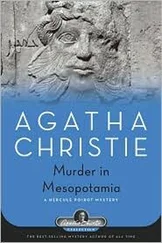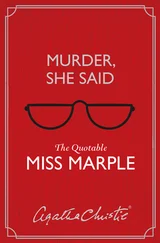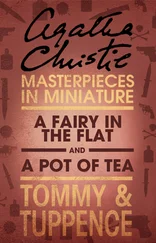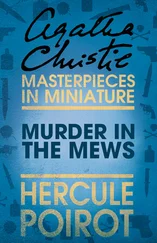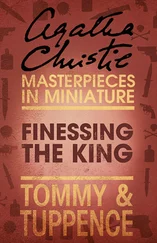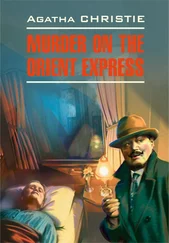Agatha Christie - Murder in the mews
Здесь есть возможность читать онлайн «Agatha Christie - Murder in the mews» весь текст электронной книги совершенно бесплатно (целиком полную версию без сокращений). В некоторых случаях можно слушать аудио, скачать через торрент в формате fb2 и присутствует краткое содержание. Жанр: Классический детектив, на английском языке. Описание произведения, (предисловие) а так же отзывы посетителей доступны на портале библиотеки ЛибКат.
- Название:Murder in the mews
- Автор:
- Жанр:
- Год:неизвестен
- ISBN:нет данных
- Рейтинг книги:5 / 5. Голосов: 1
-
Избранное:Добавить в избранное
- Отзывы:
-
Ваша оценка:
- 100
- 1
- 2
- 3
- 4
- 5
Murder in the mews: краткое содержание, описание и аннотация
Предлагаем к чтению аннотацию, описание, краткое содержание или предисловие (зависит от того, что написал сам автор книги «Murder in the mews»). Если вы не нашли необходимую информацию о книге — напишите в комментариях, мы постараемся отыскать её.
Murder in the mews — читать онлайн бесплатно полную книгу (весь текст) целиком
Ниже представлен текст книги, разбитый по страницам. Система сохранения места последней прочитанной страницы, позволяет с удобством читать онлайн бесплатно книгу «Murder in the mews», без необходимости каждый раз заново искать на чём Вы остановились. Поставьте закладку, и сможете в любой момент перейти на страницу, на которой закончили чтение.
Интервал:
Закладка:
M. Hercule Poirot was disappointed with Rhodes. He had come to Rhodes for a rest and for a holiday. A holiday, especially, from crime. In late October, so he had been told, Rhodes would be nearly empty. A peaceful, secluded spot.
That, in itself, was true enough. The Chantrys, the Golds, Pamela and Sarah, the General and himself and two Italian couples were the only guests. But within that restricted circle the intelligent brain of M. Poirot perceived the inevitable shaping of events to come.
‘It is that I am criminal-minded,’ he told himself reproachfully. ‘I have the indigestion! I imagine things.’
But still he worried.
One morning he came down to find Mrs Gold sitting on the terrace doing needlework.
As he came up to her he had the impression that there was the flicker of a cambric handkerchief swiftly whisked out of sight.
Mrs Gold’s eyes were dry, but they were suspiciously bright. Her manner, too, struck him as being a shade too cheerful. The brightness of it was a shade overdone.
She said:
‘Good morning, M. Poirot,’ with such enthusiasm as to arouse his doubts.
He felt that she could not possibly be quite as pleased to see him as she appeared to be. For she did not, after all, know him very well. And though Hercule Poirot was a conceited little man where his profession was concerned, he was quite modest in his estimate of his personal attractions.
‘Good morning, madame,’ he responded. ‘Another beautiful day.’
‘Yes, isn’t it fortunate? But Douglas and I are always lucky in our weather.’
‘Indeed?’
‘Yes. We’re really very lucky altogether. You know, M. Poirot, when one sees so much trouble and unhappiness, and so many couples divorcing each other and all that sort of thing, well, one does feel very grateful for one’s own happiness.’
‘It is pleasant to hear you say so, madame.’
‘Yes. Douglas and I are so wonderfully happy together. We’ve been married five years, you know, and after all, five years is quite a long time nowadays—’
‘I have no doubt that in some cases it can seem an eternity, madame,’ said Poirot dryly.
‘—but I really believe that we’re happier now than when we were first married. You see, we’re so absolutely suited to each other.’
‘That, of course, is everything.’
‘That’s why I feel so sorry for people who aren’t happy.’
‘You mean—’
‘Oh! I was speaking generally, M. Poirot.’
‘I see. I see.’
Mrs Gold picked up a strand of silk, held it to the light, approved of it, and went on:
‘Mrs Chantry, for instance—’
‘Yes, Mrs Chantry?’
‘I don’t think she’s at all a nice woman.’
‘No. No, perhaps not.’
‘In fact, I’m quite sure she’s not a nice woman. But in a way one feels sorry for her. Because in spite of her money and her good looks and all that’—Mrs Gold’s fingers were trembling and she was quite unable to thread her needle—‘she’s not the sort of woman men really stick to. She’s the sort of woman, I think, that men would get tired of very easily. Don’t you think so?’
‘I myself should certainly get tired of her conversation before any great space of time had passed,’ said Poirot cautiously.
‘Yes, that’s what I mean. She has, of course, a kind of appeal…’ Mrs Gold hesitated, her lips trembled, she stabbed uncertainly at her work. A less acute observer than Hercule Poirot could not have failed to notice her distress. She went on inconsequently:
‘Men are just like children! They believe anything …’
She bent over her work. The tiny wisp of cambric came out again unobtrusively.
Perhaps Hercule Poirot thought it well to change the subject.
He said:
‘You do not bathe this morning? And monsieur your husband, is he down on the beach?’
Mrs Gold looked up, blinked, resumed her almost defiantly bright manner and replied:
‘No, not this morning. We arranged to go round the walls of the old city. But somehow or other we—we missed each other. They started without me.’
The pronoun was revealing, but before Poirot could say anything, General Barnes came up from the beach below and dropped into a chair beside them.
‘Good morning, Mrs Gold. Good morning, Poirot. Both deserters this morning? A lot of absentees. You two, and your husband, Mrs Gold—and Mrs Chantry.’
‘And Commander Chantry?’ inquired Poirot casually.
‘Oh, no, he’s down there. Miss Pamela’s got him in hand.’ The General chuckled. ‘She’s finding him a little bit difficult! One of the strong, silent men you hear about in books.’
Marjorie Gold said with a little shiver:
‘He frightens me a little, that man. He—he looks so black sometimes. As though he might do—anything!’
She shivered.
‘Just indigestion, I expect,’ said the General cheerfully. ‘Dyspepsia is responsible for many a reputation for romantic melancholy or ungovernable rages.’
Marjorie Gold smiled a polite little smile.
‘And where’s your good man?’ inquired the General.
Her reply came without hesitation—in a natural, cheerful voice.
‘Douglas? Oh, he and Mrs Chantry have gone into the town. I believe they’ve gone to have a look at the walls of the old city.’
‘Ha, yes—very interesting. Time of the knights and all that. You ought to have gone too, little lady.’
Mrs Gold said:
‘I’m afraid I came down rather late.’
She got up suddenly with a murmured excuse and went into the hotel.
General Barnes looked after her with a concerned expression, shaking his head gently.
‘Nice little woman, that. Worth a dozen painted trollops like someone whose name we won’t mention! Ha! Husband’s a fool! Doesn’t know when he’s well off.’
He shook his head again. Then, rising, he went indoors.
Sarah Blake had just come up from the beach and had heard the General’s last speech.
Making a face at the departing warrior’s back, she remarked as she flung herself into a chair:
‘Nice little woman—nice little woman! Men always approve of dowdy women—but when it comes to brass tacks the dress-up trollops win hands down! Sad, but there it is.’
‘Mademoiselle,’ said Poirot, and his voice was abrupt. ‘I do not like all this!’
‘Don’t you? Nor do I. No, let’s be honest, I suppose I do like it really. There is a horrid side of one that enjoys accidents and public calamities and unpleasant things that happen to one’s friends.’
Poirot asked:
‘Where is Commander Chantry?’
‘On the beach being dissected by Pamela ( she’s enjoying herself if you like!) and not being improved in temper by the proceeding. He was looking like a thunder cloud when I came up. There are squalls ahead, believe me.’
Poirot murmured:
‘There is something I do not understand—’
‘It’s not easy to understand ,’ said Sarah. ‘But what’s going to happen that’s the question.’
Poirot shook his head and murmured:
‘As you say, mademoiselle—it is the future that causes one inquietude.’
‘What a nice way of putting it,’ said Sarah and went into the hotel.
In the doorway she almost collided with Douglas Gold. The young man came out looking rather pleased with himself but at the same time slightly guilty. He said:
‘Hallo, M. Poirot,’ and added rather self-consciously, ‘Been showing Mrs Chantry the Crusaders’ walls. Marjorie didn’t feel up to going.’
Poirot’s eyebrows rose slightly, but even had he wished he would have had no time to make a comment for Valentine Chantry came sweeping out, crying in her high voice:
‘Douglas—a pink gin—positively I must have a pink gin.’
Читать дальшеИнтервал:
Закладка:
Похожие книги на «Murder in the mews»
Представляем Вашему вниманию похожие книги на «Murder in the mews» списком для выбора. Мы отобрали схожую по названию и смыслу литературу в надежде предоставить читателям больше вариантов отыскать новые, интересные, ещё непрочитанные произведения.
Обсуждение, отзывы о книге «Murder in the mews» и просто собственные мнения читателей. Оставьте ваши комментарии, напишите, что Вы думаете о произведении, его смысле или главных героях. Укажите что конкретно понравилось, а что нет, и почему Вы так считаете.


